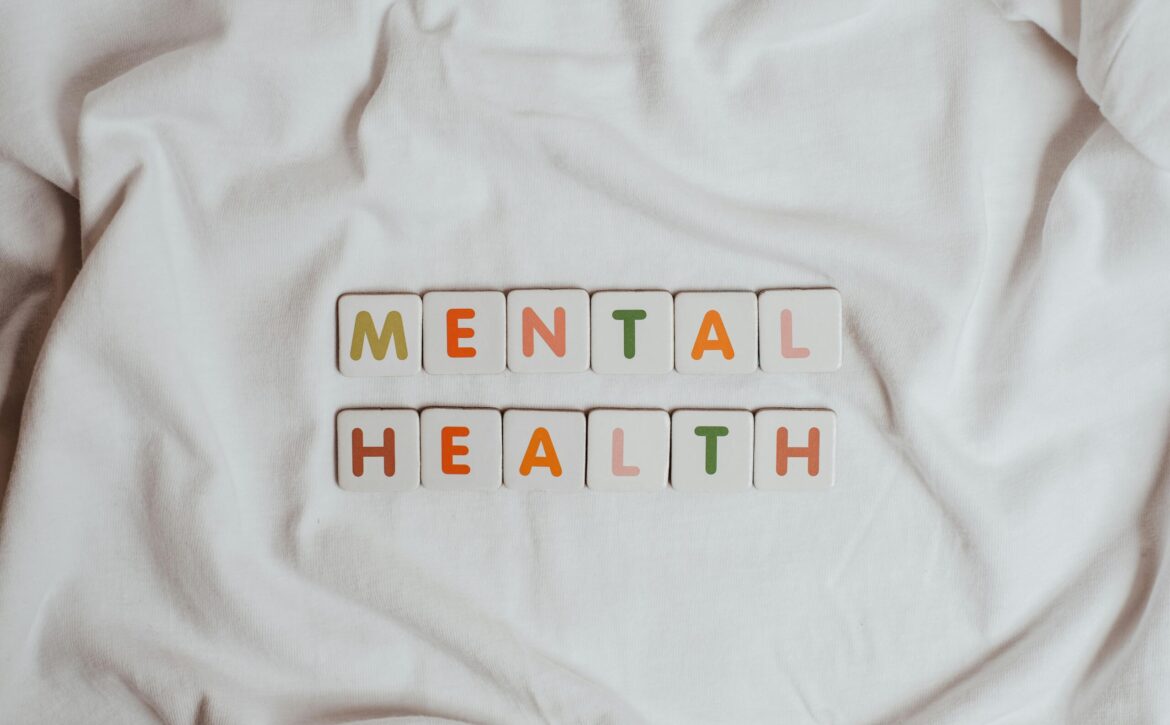Let’s create a space where no one ever feels isolated
It’s perfectly okay to feel down from time to time. We’ve all faced moments like that in our lives. Occasionally, life’s pressures can become overwhelming, and during those times, we need someone who can listen and truly understand what we’re going through. This is the essence of mental health—acknowledging that everyone needs support now and then.
The real question is: Can we recognize when we’re feeling isolated and take that crucial step to seek help? Whether it’s confiding in a friend, a family member, a therapist, or anyone who will listen, we must continue the conversation to shatter the stigma and build a world that’s more understanding.
Many of us grew up in environments where mental health was dismissed as something deceptive, as if struggling with it was a betrayal to society or a sign of personal failure. There was a time when talking about anxiety or depression as a legitimate illness would be instantly disregarded. Worse still, society often rejected not just the idea but the individual themselves.
Sometimes, our own attitudes unknowingly fuel the stigma, and this can be damaging, as it stops us from reaching out for help when we need it the most. This only deepens the struggle. By accepting or overlooking the stigma, we allow it to become a part of our reality—the status quo. Without realizing it, we begin to believe that who we are in this moment is all we’ll ever be, that change isn’t possible, and that no one else in the world shares our experience. This can lead to the harmful belief that no one can offer us help.
As parents, it’s crucial that we recognize this, because our children learn primarily through our actions. They observe us closely and imitate what we do, often more than what we say. At times, we may tell them one thing but act in a completely different way. This inconsistency can send a confusing message, especially when our children need to feel comfortable opening up and sharing their emotions with us.
There’s another critical element we must acknowledge—one that cannot be ignored. If our children don’t turn to us, they will inevitably seek comfort elsewhere, whether that be in other individuals or in things they find more relatable. They might turn to the internet for answers, connect with peers grappling with similar struggles, or emulate examples that align with their beliefs and aspirations. This leads to a sobering truth: before we even recognize the gravity of the situation, we may find ourselves facing a cascade of issues and challenges that our children have unwittingly become ensnared in.
We must never dismiss this as improbable or assume we are overstating the severity, particularly when confronted with heartbreaking instances of children attempting suicide. When I mention “children,” I mean individuals of all ages. My son, who is now 26, remains my child, and as a parent, I carry the weight of my son’s struggles—a pain that only those who have experienced it can fully understand. If we find ourselves at this juncture, it indicates that we are awakening far too late, for what has happened or what has been lost is beyond our power to change.
However, we have the power to prevent this from happening. We can achieve this by keeping the conversation about mental health open and honest. By sharing our own stories, we can help break the stigma surrounding these issues. This involves creating a safe space for dialogue—a welcoming environment where our children feel comfortable coming to us when they need support. It’s essential that we convey to them that they are not alone and that there will always be someone ready to listen and understand.
Mental health encompasses our emotional, psychological, and social well-being, influencing how we think, feel, and behave. It’s important to recognize that mental health is a fluid concept; it isn’t simply a binary definition denoting the absence of mental illness. Instead, it represents a spectrum of experiences and conditions.
Mental health is an expansive term that encompasses a wide range of facets. For instance, it includes:
- Our strategies for coping with stress
- Our capacity to connect with others
- Our ability to reach our goals and fulfill our aspirations
- Our resilience when confronted with challenges
- Our readiness to navigate unforeseen circumstances, such as illness, and more.
In essence, mental health serves as a reflection of our overall well-being, fluctuating much like physical health does over the course of our lives.
When our mental health is in a positive state, we tend to be more productive, experience a sense of purpose, and manage stress more effectively.
Conversely, poor mental health can lead to serious and debilitating challenges. The warning signs are often evident to those willing to pay attention, and it is our duty to identify them early in our children, loved ones, or friends. While these signs may be present, they can easily be overlooked amid the chaos of our daily lives.
These signs may manifest as:
- Irregular sleep patterns, whether that means oversleeping or not getting enough rest
- A withdrawal from regular activities
- Persistent feelings of low energy
- Heightened conflicts or arguments with family and friends
- Significant mood swings that disrupt relationships
- An overwhelming sense of confusion, forgetfulness, anger, frustration, anxiety, or fear
It’s often easier for us to notice changes in our surroundings because our brains have evolved to detect significant threats rather than the more subtle shifts in people’s attitudes.
Take, for instance, the scenario of walking down the street and hearing a noise behind you. Instinctively, you become more alert, your senses heightened as you perceive potential danger. Whether or not a vehicle is approaching in a safe manner becomes irrelevant; your instinct drives you to pause and assess the situation. Your mind triggers an alarm, reinforcing the idea that it’s always wiser to be cautious than to face the regret of having ignored a possible threat.
Yet, during that same walk, you might overlook subtle changes, like a house that stood yesterday but is gone today. This is because a house collapsing is a change we’ve learned to recognize, unlike an abrupt event that commands your focus, such as a car honking behind you. If a building has been there for years, its surroundings may shift gradually, but it doesn’t compare to a sudden, alarming occurrence. Consequently, a fallen house may not capture your immediate attention. Similarly, small changes in the realm of mental health can remain undetected for years or even decades.
These early warning signs frequently mirror the symptoms of puberty, which is why many parents may overlook what’s happening. It’s not always clear what we should be vigilant for; the subtle indicators can easily slip under the radar, especially when we can rationalize them with other harmless explanations.
Yet, even if you sense something is amiss, what actions can you take?
Without personal experience or a way to relate, it can be challenging to support someone in need.
That’s why it’s valuable to delve into and grasp some common mental health conditions from the viewpoint of those who face them. Two of the most prevalent issues are stress and anxiety.
How Anxiety Feels
Anxiety presents itself as a persistent sense of unease, where life seems poised to change unexpectedly, yet the details remain elusive. It embodies a deep-rooted fear of what the future may hold. Those grappling with anxiety often find themselves so consumed by worry and dread that concentrating on anything else becomes an insurmountable challenge.
Anxiety goes beyond simply feeling nervous before a significant presentation or anticipated event. For those grappling with anxiety, that sensation is almost always present. Common symptoms include a racing heartbeat, a tightness in the chest, and an overwhelming urge to cry as a means of solace. During these times, individuals experiencing anxiety seek compassion and a listener who can offer support without overwhelming them with questions.
Many of us feel this kind of sensation before an event, whether it’s an activity, an exam, or a job interview. Even those who are simply meeting unfamiliar faces can experience it. At times, the weight of anxiety can feel so heavy that the instinct is to retreat to a corner, curling up and hugging oneself for comfort. During these moments, the mind can play perilous tricks, making it all the more important for individuals to have someone who reassures them that they are not alone in their struggles.
This is the reality for those grappling with anxiety—it’s an ever-present shadow.
We must tread carefully with the words we choose, as what may sound trivial to us can carry immense weight when spoken by someone battling this condition. Expressions such as:
- “I’m not feeling well at all today.”
- “Nothing seems to be going right for me.”
- “I’m exhausted by this life.”
- “I can’t seem to find any peace.”
- “I see no hope for my future.”
During these moments, silence often communicates more than words ever could, hinting at profound struggles and emotions that remain unexpressed.
Do you know someone who struggles with anxiety?
It’s essential to recognize that their thought processes differ significantly, which means it often requires greater levels of patience from those around them. What we consider normal and manageable stress can feel overwhelming and monumental to them. Their reactions to various situations can also vary widely. We must be mindful of this and avoid being indifferent.
Think of it as an alarm system that’s been set to overly sensitive. Just like a smoke detector that goes off without any actual fire, the turmoil caused by anxiety can render life incredibly challenging.
Anxiety disorders come in various forms, yet they all share a common thread: an overwhelming sense of fear or worry in situations where most people feel safe.
It’s essential for us to exercise patience. Encouraging them to articulate their thoughts can foster a deeper understanding on our part. By taking the time to comprehend their experiences, we can cultivate a supportive environment that helps them reclaim their sense of control.
We Care
The events we recently supported have left everyone in shock, prompting me to deeply reflect on the vital work the Local Councils Association is doing for the employees and elected members of our local councils.
In March of this year, a free counseling service was introduced, offering vital support to anyone grappling with personal challenges. This initiative serves as a lifeline, providing solace, refuge, and professional guidance to individuals navigating difficult circumstances, such as the emotional strain of separation, the shock of an unexpected medical diagnosis, the grief of losing a parent or child, or the heartache of being distanced from their children due to legal battles. These are situations that can affect anyone, regardless of how ‘normal’ or put-together their lives may appear from the outside. This service recognizes that beneath the surface, we all face struggles that require compassion and understanding.
What really is normal? Isn’t everyone, at some point, silently navigating one of the very challenges I’ve just described? Haven’t we all known a relative or friend who has faced these struggles at some stage in their life? And the real question is—how are we, as individuals and as a community, addressing and supporting one another through such difficult times? How do we show up when life presents these trials?
That’s why I believe this project is of great help, not only in assisting individuals to regain stability in their lives but also in providing them with the necessary tools and knowledge on how to conduct themselves, even in the workplace.
We must never lose sight of the fact that every life holds immense value. Our efforts should extend beyond merely preventing suicide attempts—we must also strive to uplift those in distress, ensuring they are supported in building a fulfilling life, not merely surviving. It’s about creating an environment where people can thrive, not just endure, and helping them find meaning and joy, even in the face of adversity..
This is a responsibility we all share, not just as a compassionate community and nation, but because what we may overlook today could very well become our own reality tomorrow. Life has a way of reminding us that, from the sky to the ground, we are all equal. No one is immune to hardship, and it’s our duty to stand together, lifting one another up, knowing that the roles could easily be reversed.
Mario Fava
President









